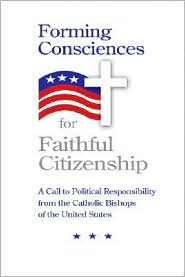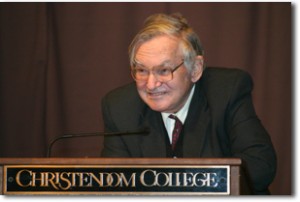The 2008 “Forming Consciences for Faithful Citizenship” was published by the Catholic bishops as a guide for the voters. The bishops re-publish this document every four years, always with some sort of revisions. Matt Smith and I have posed an important question for the bishops to answer in the 2012 version — which will be approved at the upcoming annual meeting of the bishops in November.
The reason for this question is summarized by problems found in Sections 34-37 of the document. These sections contain three loopholes allowing Catholic voters to support pro-abortion politicians:
1) If they do not intend to support that position (34), or
2) if there are offsetting “morally grave reasons” (35), or
3) if a candidate will pursue “authentic human goods” rather than the “morally-flawed” position he holds (36).
After positing these loopholes, how can the bishops expect Catholic voters to make sense of the following paragraph, Section 37:
“In making these decisions, it is essential for Catholics to be guided by a well-formed conscience that recognizes that all issues do not carry the same moral weight and that the moral obligation to oppose intrinsically evil acts has a special claim on our consciences and our actions. These decisions should take into account a candidate’s commitments, character, integrity, and ability to influence a given issue.” [emphasis added]
Why should a Catholic voter feel the weighty obligation to oppose “intrinsically evil acts” when the bishops themselves provide three different loopholes to put that concern aside?
These loopholes, as we call them, lead to the following question the bishops should answer in the 2012 version of “Faithful Citizenship”:
What are the “grave moral” or “proportionate” reasons that would justify a Catholic voting for a pro-abortion candidate?
Those Catholics who publicly supported pro-abortion politicians in 2008 made use of these loopholes in their political outreach. If these sections are not clarified by the bishops in November there will be a loud cry — asking ‘why?’ — from Catholics across the nation.
Read the entire column by clicking here.


